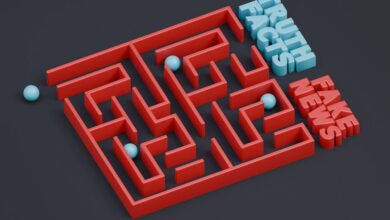The Blaugrana’s Attacking Flourish: A Symphony of Movement

There are certain football matches that, on paper, appear straightforward – a dominant home team against an underdog. Yet, as any seasoned fan knows, the beautiful game rarely adheres to script. The pressure on a club like Barcelona, steeped in a rich history of attacking prowess and expectation, is immense, regardless of the opponent. Every pass, every tackle, every goal carries a weight, a narrative woven into the fabric of their season.
So, when Elche visited Camp Nou, the expectation was not just a win, but a performance. A performance that would showcase the direction the team is heading, a display worthy of the Blaugrana badge. And in their 3-1 victory, Barcelona largely delivered, putting together some truly lovely moves that hinted at a brighter, more cohesive future. It wasn’t just about the three points; it was about the manner in which they were earned, the glimpses of fluidity and attacking intent that had fans buzzing.
The Blaugrana’s Attacking Flourish: A Symphony of Movement
From the first whistle, it was clear Barcelona intended to dominate proceedings, not just in possession, but in intent. The midfield, often the heartbeat of any great Barça side, was alive with energy and purpose. Frenkie de Jong, orchestrating play from deep, linked up beautifully with the more advanced Pedri and Gavi, whose youthful exuberance and technical quality were a joy to behold. These are the players who embody the future of this club, and their understanding on the pitch felt almost telepathic at times.
The opening goal, a testament to intelligent movement and clinical finishing, set the tone. It wasn’t just a moment of individual brilliance, but the culmination of patient build-up and incisive passing that tore open the Elche defense. You could almost feel the relief ripple through the stadium, a collective exhale knowing that their team was asserting its dominance. The ball moved with pace and precision, a classic Barcelona trademark that has, at times, felt elusive in recent seasons.
Of course, no discussion of Barcelona’s attacking output would be complete without mentioning Robert Lewandowski. The Polish striker has seamlessly integrated into the team, proving time and again why he is one of the world’s elite forwards. His knack for being in the right place at the right time, combined with his unwavering composure in front of goal, makes him an absolute menace for any opposition defense. His goals weren’t just simple tap-ins; they were the product of clever positioning, a predator’s instinct, and the ability to convert chances that lesser strikers might squander. He truly elevates the entire attacking line, demanding attention and creating space for others.
What truly impressed was the variety in Barcelona’s attacking play. It wasn’t just central thrusts; the wide players, notably Raphinha and Ousmane Dembélé, provided pace and trickery on the flanks, stretching Elche’s defense and creating pockets of space for the midfielders to exploit. Crosses came in with purpose, runs were made with conviction, and the overall attacking shape felt balanced and dangerous. It felt like Barcelona were rediscovering their rhythm, finding those familiar patterns of play that have captivated football fans for decades.
Defensive Nuances and Areas for Growth
While the attacking display was largely commendable, football is rarely a one-sided affair, and Elche, to their credit, did not simply roll over. Despite Barcelona’s dominance in possession and territory, Elche managed to carve out opportunities, culminating in their solitary goal. This served as a crucial reminder that even in victory, there are always lessons to be learned and areas to refine.
The concession of the goal, though not a catastrophic error, highlighted moments where communication or positioning could be tighter. In the high-stakes world of La Liga and European football, such lapses can be far more costly. Marc-André ter Stegen, ever reliable, made a few key saves that underlined his importance, preventing Elche from gaining a stronger foothold in the match. His presence between the sticks provides a sense of security that allows the outfield players to take more risks going forward.
The defensive pairing in the heart of the backline, alongside the full-backs, generally held firm against Elche’s counter-attacks. There was a noticeable effort to win the ball back high up the pitch, a hallmark of Xavi’s tactical philosophy. When this high press clicked, Elche found it incredibly difficult to escape their own half. However, when Elche did manage to break through, the speed of their transitions sometimes caught Barcelona slightly off guard. It’s a delicate balance: committing players forward for attack inevitably leaves space in behind, and managing this risk-reward equation is a continuous challenge for any top team.
Overall, the defensive performance was robust enough to secure a comfortable win, but the single goal conceded offers valuable data for the coaching staff. It’s not about panicking, but about fine-tuning. Every top team understands that championships are built on a solid foundation, and while attacking flair wins hearts, defensive resilience wins titles. The team showed character to quickly regain control after Elche’s goal, preventing any significant shift in momentum, which speaks volumes about their growing maturity.
Building Momentum: The Xavi Blueprint Takes Shape
This 3-1 victory against Elche feels more significant than just three points. It represents tangible progress in Xavi Hernández’s project. We are beginning to see the pieces of his tactical blueprint fall into place, not just individually, but as a cohesive unit. The fluid passing, the relentless pressing, the emphasis on control and positional play – these are the cornerstones of the Barcelona identity, and they were on full display.
Xavi has consistently preached patience, knowing that transforming a team, especially one undergoing such significant generational change, is not an overnight process. However, matches like this provide crucial validation. They show that the hard work on the training ground is translating into effective performances on the pitch. The young talents, in particular, seem to be thriving under his guidance, playing with a freedom and confidence that is infectious.
The challenge now for Barcelona is consistency. Can they replicate this level of performance against tougher opposition, both domestically and in Europe? Building momentum is about stringing together wins, and more importantly, stringing together convincing performances. This win provides a psychological boost, a confirmation that their approach is yielding results. It builds confidence within the squad and reignites optimism among the fanbase.
As the season progresses, every match becomes a building block. This Elche game was a vital one, not just for the points gained, but for the collective statement it made. It reinforced the notion that Barcelona are a team finding their feet, rediscovering their identity, and slowly but surely, working their way back to the summit of European football. The path is long, but the signs of progress are undeniable.
Conclusion
The 3-1 victory over Elche was more than just another win; it was a performance laden with positive indicators for Barcelona. The blend of youthful exuberance and experienced leadership, particularly in attack, created a spectacle that genuinely engaged the Camp Nou faithful. While there were a few defensive moments that highlighted areas for continued improvement, the overall display was one of purpose, quality, and a growing understanding of Xavi’s demanding philosophy.
For fans, it was a breath of fresh air, a glimpse of the Barcelona they love: a team that attacks with flair, controls the midfield, and plays with an almost arrogant confidence in their own abilities. This result provides crucial momentum, a springboard for future challenges, and a clear signal that the Blaugrana are steadily, confidently, moving in the right direction. The journey is far from over, but with performances like this, the destination feels a little closer, a little more attainable.





